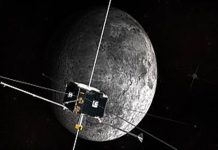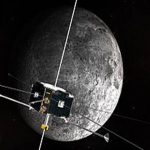 1.Yashvardhan Kumar Sinha sworn in as the new CIC of the country, President Ram Nath Kovind:-
1.Yashvardhan Kumar Sinha sworn in as the new CIC of the country, President Ram Nath Kovind:- Information Commissioner Yashvardhan Kumar Sinha has become the new Chief Information Commissioner (CIC) of the country. President Ram Nath Kovind administered him the oath of office and secrecy at Rashtrapati Bhavan today. Information Commissioner Yashvardhan Kumar Sinha has been a former Indian Foreign Service officer. Officials said journalist Uday Mahurkar, former Labor Secretary Hira Lal Samaria and former Deputy Comptroller and Auditor General Saroj Punhani have been appointed as Information Commissioners. These people were selected by a three-member committee headed by Prime Minister Narendra Modi. Congress leader in Lok Sabha, Adhir Ranjan Chaudhary and Home Minister Amit Shah are members of this committee. Sinha, who was the Indian High Commissioner to Britain and Sri Lanka, became the Information Commissioner on January 1 last year. Bimal Julka’s term as CIC was completed on August 26, since then the post was vacant. The tenure of 62-year-old Sinha will be around three years. CICs or Information Commissioners are appointed for five years or up to the age of 65 years.
Information Commissioner Yashvardhan Kumar Sinha has become the new Chief Information Commissioner (CIC) of the country. President Ram Nath Kovind administered him the oath of office and secrecy at Rashtrapati Bhavan today. Information Commissioner Yashvardhan Kumar Sinha has been a former Indian Foreign Service officer. Officials said journalist Uday Mahurkar, former Labor Secretary Hira Lal Samaria and former Deputy Comptroller and Auditor General Saroj Punhani have been appointed as Information Commissioners. These people were selected by a three-member committee headed by Prime Minister Narendra Modi. Congress leader in Lok Sabha, Adhir Ranjan Chaudhary and Home Minister Amit Shah are members of this committee. Sinha, who was the Indian High Commissioner to Britain and Sri Lanka, became the Information Commissioner on January 1 last year. Bimal Julka’s term as CIC was completed on August 26, since then the post was vacant. The tenure of 62-year-old Sinha will be around three years. CICs or Information Commissioners are appointed for five years or up to the age of 65 years.
2.ISRO launches 10 satellites with PSLV C49, PM Modi congratulates scientists:-  The Indian Space Research Organization (ISRO) has once again proven its technology in the world. ISRO launched 10 satellites through PSLV-C49 at 3:00 pm. Out of this, 9 are international satellites, while one India means Observation Satellite (EOS-01). The launch countdown began on Friday. The Indian Space Research Organization (ISRO) reported that all nine subscriber satellites have been successfully separated and injected into their orbit. PM Modi today congratulated ISRO and India’s space industry for the successful launch of PSLV-C49 mission. He said that in the time of Corona virus, our scientists have overcome many obstacles to meet the deadline. Explain that out of the 10 satellites launched today, one is from India, one from Lithuania, four from Luxembourg and four from America. All these satellites were launched from the Satish Dhawan Space Center in Sriharikota at 3:00 pm. This is the first space mission of the Indian Space Research Organization this year amid the corona virus epidemic.
The Indian Space Research Organization (ISRO) has once again proven its technology in the world. ISRO launched 10 satellites through PSLV-C49 at 3:00 pm. Out of this, 9 are international satellites, while one India means Observation Satellite (EOS-01). The launch countdown began on Friday. The Indian Space Research Organization (ISRO) reported that all nine subscriber satellites have been successfully separated and injected into their orbit. PM Modi today congratulated ISRO and India’s space industry for the successful launch of PSLV-C49 mission. He said that in the time of Corona virus, our scientists have overcome many obstacles to meet the deadline. Explain that out of the 10 satellites launched today, one is from India, one from Lithuania, four from Luxembourg and four from America. All these satellites were launched from the Satish Dhawan Space Center in Sriharikota at 3:00 pm. This is the first space mission of the Indian Space Research Organization this year amid the corona virus epidemic.
3.The winds of change and development in Kashmir, improvement in infrastructure will be a new dawn:- T he last one year has been decisive for Jammu and Kashmir. Now the ground for ground change is ready here. Many old laws have either been repealed or necessary amendments have been made. By doing so, not only has all the barriers and obstacles of integration of Jammu and Kashmir with the rest of India been eliminated, but also paved the way for prosperity, progress and development. Recently, Jammu and Kashmir’s new domicile policy, media policy, land ownership policy and language policy have been changed, eliminating distance and isolation. The process for the formation of the District Development Council has started under the three-tier Panchayati Raj system. Industrial policy here is going to be announced very soon. Urdu has been the official language of Jammu and Kashmir from the year 1889 to 1957 and since the implementation of the Jammu and Kashmir Official Language Bill -2020. English is the second practical language of government. Ironically, there are only one percent Urdu readers in this state. English-speaking people are also about two percent. The remaining people speak Kashmiri, Dogri, Hindi etc. languages. The Government of India, implementing the Jammu and Kashmir Official Language Bill-2020, has given five languages - Kashmiri, Dogri, Hindi, Urdu and English as official languages.
he last one year has been decisive for Jammu and Kashmir. Now the ground for ground change is ready here. Many old laws have either been repealed or necessary amendments have been made. By doing so, not only has all the barriers and obstacles of integration of Jammu and Kashmir with the rest of India been eliminated, but also paved the way for prosperity, progress and development. Recently, Jammu and Kashmir’s new domicile policy, media policy, land ownership policy and language policy have been changed, eliminating distance and isolation. The process for the formation of the District Development Council has started under the three-tier Panchayati Raj system. Industrial policy here is going to be announced very soon. Urdu has been the official language of Jammu and Kashmir from the year 1889 to 1957 and since the implementation of the Jammu and Kashmir Official Language Bill -2020. English is the second practical language of government. Ironically, there are only one percent Urdu readers in this state. English-speaking people are also about two percent. The remaining people speak Kashmiri, Dogri, Hindi etc. languages. The Government of India, implementing the Jammu and Kashmir Official Language Bill-2020, has given five languages - Kashmiri, Dogri, Hindi, Urdu and English as official languages.
4. Cancer Awareness Day 2020:- The National Cancer Awareness Day is observed annually in India on November 7, to spread awareness on cancer, its symptoms and treatment. According to the World Health Organization (WHO), cancer is the second leading cause of death globally. In 2018, approximately 18 million cases were there globally, of which, 1.5 million were in India alone. In 2018, there were around 0.8 million cancer deaths in India against 9.5 million globally.
The National Cancer Awareness Day is observed annually in India on November 7, to spread awareness on cancer, its symptoms and treatment. According to the World Health Organization (WHO), cancer is the second leading cause of death globally. In 2018, approximately 18 million cases were there globally, of which, 1.5 million were in India alone. In 2018, there were around 0.8 million cancer deaths in India against 9.5 million globally.
5.First phase of Malabar Naval exercise concluded, second phase in Arabian Sea from 17-20:-  The first phase of the 24th edition of the four countries’ joint naval exercise Malabar 2020 (Malabar naval exercise 2020) was concluded in the Bay of Bengal on Friday. Navies of India, US, Japan and Australia are participating in this joint exercise which started from November 3. This exercise is being conducted in two phases. The first phase was practiced under the leadership of Rear Admiral Sanjay Vatsyayan of the Eastern Fleet of the Indian Navy. Its second phase will run from 17-20 November in the Arabian Sea. The Malabar Naval Exercise was started by Indian and US Navy in the year 1992 with a joint exercise in the Indian Ocean. Japan joined in the year 2015. Australia has been participating since 2007. This is the first time in a span of more than 10 years when four countries are participating in it. The first phase of the exercise, which began on November 3, ended on 6 November. In this exercise the Indian Navy along with its Destroyer Rannvijay, Frigate Shivalik, Offshore Patrol Vessel Sukanya, Fleet Support Ship Shakti and Submarine Sindhuraj participated. While the US Navy has guided the guided missile Destroyer USS John S. McCain, the Australian Navy has launched a long range frigate ballarat with the MH-60 helicopter and the Japanese Navy has launched the Destroyer Onami.
The first phase of the 24th edition of the four countries’ joint naval exercise Malabar 2020 (Malabar naval exercise 2020) was concluded in the Bay of Bengal on Friday. Navies of India, US, Japan and Australia are participating in this joint exercise which started from November 3. This exercise is being conducted in two phases. The first phase was practiced under the leadership of Rear Admiral Sanjay Vatsyayan of the Eastern Fleet of the Indian Navy. Its second phase will run from 17-20 November in the Arabian Sea. The Malabar Naval Exercise was started by Indian and US Navy in the year 1992 with a joint exercise in the Indian Ocean. Japan joined in the year 2015. Australia has been participating since 2007. This is the first time in a span of more than 10 years when four countries are participating in it. The first phase of the exercise, which began on November 3, ended on 6 November. In this exercise the Indian Navy along with its Destroyer Rannvijay, Frigate Shivalik, Offshore Patrol Vessel Sukanya, Fleet Support Ship Shakti and Submarine Sindhuraj participated. While the US Navy has guided the guided missile Destroyer USS John S. McCain, the Australian Navy has launched a long range frigate ballarat with the MH-60 helicopter and the Japanese Navy has launched the Destroyer Onami.
6.India-Italy Virtual Bilateral Summit 2020:- The Bilateral Summit between India and Italy was held virtually on 6th November 2020. The Summit was attended by the Indian Prime Minister Shri Narendra Modi and Prime Minister of Italy Prof. Giuseppe Conte. The two leaders reviewed the broad framework of the bilateral relationship and reaffirmed their commitment to strengthen cooperation against common global challenges, including the Covid-19 pandemic. A wide range of issues was discussed including political, economic, scientific & technological, space and defence cooperation. 15 MoUs/Agreements were signed during the Summit in various sectors such as energy, fisheries, shipbuilding, design etc.
The Bilateral Summit between India and Italy was held virtually on 6th November 2020. The Summit was attended by the Indian Prime Minister Shri Narendra Modi and Prime Minister of Italy Prof. Giuseppe Conte. The two leaders reviewed the broad framework of the bilateral relationship and reaffirmed their commitment to strengthen cooperation against common global challenges, including the Covid-19 pandemic. A wide range of issues was discussed including political, economic, scientific & technological, space and defence cooperation. 15 MoUs/Agreements were signed during the Summit in various sectors such as energy, fisheries, shipbuilding, design etc.

















